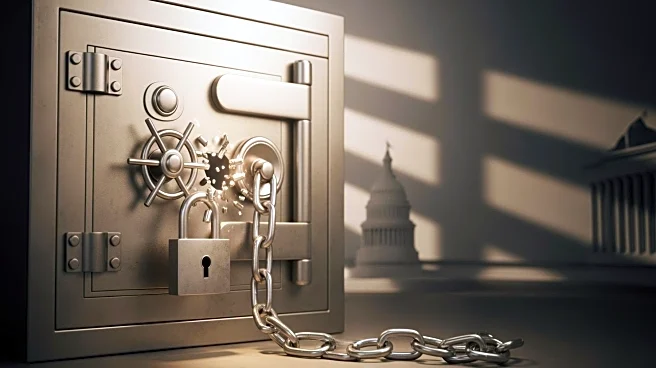What's Happening?
The ongoing government shutdown is raising concerns about its potential economic impact, particularly as President Trump has suggested that some furloughed workers may not receive back pay. Historically, shutdowns have had minimal lasting effects on the
economy, but the current situation could be different due to the prolonged duration and threats of layoffs. Essential services like Social Security and student loan payments continue, but federal workers and contractors face financial distress due to missed paychecks. The shutdown is affecting local economies, especially in areas with high concentrations of federal employees.
Why It's Important?
The shutdown's impact on federal workers and contractors could lead to broader economic consequences if consumer confidence and spending are affected. The potential loss of back pay and layoffs could result in permanent economic losses, challenging the typical recovery seen after past shutdowns. Local economies, particularly those reliant on federal employees, may experience reduced consumer spending and business activity. The situation underscores the political and economic stakes involved in resolving the shutdown, with implications for public policy and government operations.
What's Next?
As the shutdown continues, federal workers and contractors may face increased financial strain, potentially leading to public and political pressure for resolution. The administration's handling of worker pay and layoffs is being challenged in court, and further legal developments could influence the outcome. Economists are closely monitoring consumer confidence and spending data to assess the shutdown's broader impact. The situation may prompt discussions on legislative measures to prevent future shutdowns and protect federal workers.
















